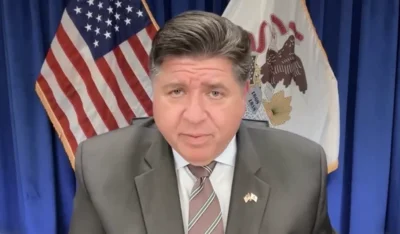Marlo Lewis, Jr.
Marlo Lewis, Jr.
Why would we want to remain in a club that’s organized to pressure and browbeat us into acting against our best interests and better judgment? Suppose also that someone signed us up without our consent. Why would we reward such trickery and endure years of nagging, scolding and bad advice?
Those are the questions that continue to face President Trump one year after he announced his decision to pull America out of the fossil-fuel haters club — the U.N.-sponsored Paris climate treaty.
Mr. Trump made the right decision. Unfortunately, under his plan to withdraw from the Paris Agreement, America will remain in the treaty until the day after the 2020 elections. That means the next president could rejoin the pact with a stroke of the pen, picking up where President Obama left off.
Mr. Trump chose a slow withdrawal procedure in hopes of negotiating a “better deal” that is “fair” to U.S. businesses and workers. He faulted Mr. Obama for committing America to implement costly emission cuts by 2025 while India’s and China’s emissions continue to rise on autopilot through 2030.
However, even if the president could rescind the current U.S. emission-reduction pledge — an option contrary to the language of the Paris Agreement — remaining in the pact would still endanger America’s economic future and political independence.
As Mr. Trump explained in his energy policy executive order, it is in our national interest to develop America’s vast energy resources and roll back the regulatory burdens that unnecessarily hinder energy production. Such burdens reduce economic growth and job creation. Moreover, prudent development of U.S. coal, oil and gas lowers energy costs, which makes our manufacturers more competitive. A thriving U.S. energy sector also ensures that our allies don’t have to depend on Russia or OPEC for their oil and gas.
For all those reasons, Mr. Trump seeks to lead America into an era of “U.S. energy dominance.” But the Paris Agreement is intrinsically hostile to Mr. Trump’s policy vision and the national interests he seeks to safeguard. The agreement is the legal framework for a global, multi-decade, pressure campaign to entrench and intensify an agenda of cap-and-trade programs, heavy regulation and assorted “keep it in the ground” restrictions on energy development — the very policies Mr. Trump campaigned against and is rescinding.
A critical question for the president is whether his energy policies can outlast his term. One thing is certain: The emerging era of U.S. energy dominance is more likely to endure if future U.S. leaders are not entangled in the Parispressure regime.
Even if Mr. Trump were to replace Mr. Obama’s emission-reduction pledge with a less-punitive version, a decision to remain in the agreement would be seen on all sides as a loss of will to protect U.S. energy producers from regulatory assault. That would lead inevitably to declining energy investment and production, higher energy prices and weaker U.S. manufacturers. No wonder our European competitors are desperate to keep us in the club.
Advocates for the agreement claim we risk nothing by staying in because the treaty’s emission-reduction commitments are “non-binding” under international law. That argument is either naive or disingenuous.
Here is the simple syllogism they either don’t grasp or won’t admit. The Paris Agreement will put unrelenting pressure on U.S. leaders to make “ambitious” promises to tax, ban or otherwise restrict U.S. energy development. Promises are a big deal in American politics. And Paris parties honor their non-binding promises by turning those commitments into binding laws and regulations.
Instead of trying to improve a treaty wired to Europeanize U.S. energy policy, Mr. Trump should extricate America from the Paris Agreement quickly and in a way that cannot easily be undone by a future executive. He should also choose an option that restores the Senate’s constitutional role in treaty-making.
The Paris Agreement is clearly a treaty by virtue of its potential costs and risks to the nation as a whole, dependence on subsequent legislation by Congress, and other traditional criteria. However, Mr. Obama knew that even when Democrats were the majority party, there was no chance the Senate would consent to new international climate commitments. So he claimed the agreement wasn’t a treaty in order to bypass the U.S. Constitution’s advice-and-consent process.
To ensure future executives do not try this underhanded maneuver again, Mr. Trump should submit the agreement to the Senate with a recommendation that it be voted down. The treaty has even less chance now to win the required “two thirds of the senators present” than when Mr. Obama was president. That means we could be out as soon as the Senate votes.
Once rejected and exposed as lacking broad public support, it is doubtful any future president would attempt to rejoin the Paris Agreement unilaterally. Or if a future executive did so, there would likely be strong pushback by the people and their representatives.
– Marlo Lewis, Jr. is a senior fellow at the Competitive Enterprise Institute. Lewis writes on global warming, energy policy, and public policy issues.






 Alerts Sign-up
Alerts Sign-up